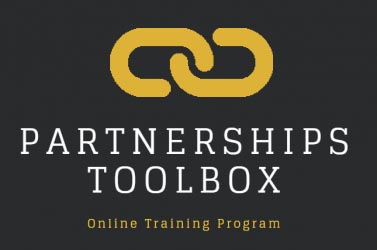Business looked good. So good that Jason saw the opportunity to enlist a business partner for his growing fencing business. Craig had complementary trade skills and some business skills that would be useful for the partnership. The market looked good, so they just got on with the job. For the first eight months, things ran well. Jason and Craig slipped into an easy partnership arrangement. Then along came some unforeseen spanners in the works. The first major contract didn’t create as much work as expected. A large supplier came to town, along with the ability to supply materials cheaper than they could. The business was strong in crafts skills but lacking in business planning. Both were busy in the job and there was little time and skills to focus on the business administration. Help was needed to keep up with the BAS and to set up and manage systems.
The partners engaged a friend to advise and assist on business matters. They did not get the right advice and support to maintain and build the business. On hindsight, they should have focussed on skills rather than relationships in this important appointment.
Jason and Craig continued for eight years, meeting hurdles as they came along. They stayed in the business because it suited their lifestyle.
In the end, reading the tide flowing against similar businesses in the area, they decided to end the partnership. They had incurred debt, some of which they were not aware of until it was too late. This scenario is all too common in business partnerships.
Had they had access to expertise before they entered into the partnership, they would have considered a third business partner with the essential missing skills sets. They would have needed guidance to focus on skills and not automatically accept a partner on the strength of friendship. They may not have been able to predict the impact of a large business entry into the arena so soon after they started (i.e. before they became established), but they would have considered a business plan that could be reviewed periodically to track their performance against realistic expectations.
Recommendations for anybody setting up a partnership:
- Go see a solicitor, accountant, and insurance company – all those things associated with a business. It’s worth the money for peace of mind.
- Make sure you have access to the right skills. Consider partners with complementary skills that add value to the business.
- Keep family out of it. Do not bring family business to work. Leave family at the door and do not let family encroach on day-to-day operations. Ensure the family is aware of the established boundaries. Reality is it is a ‘Win – Win’ situation for all. Keep in mind you may be operating machinery etc. and the Safety and wellbeing of your team is your highest priority. One phone call or text can throw concentration which can lead to fatal consequences.
- Consider as part of your Safe Work practises a mobile phone policy. With Facebook, twitter etc. many businesses now ban phones from the workplace and only those authorised can carry and use them.
- Keep your health. Maintain a work-life balance. Do not take work home with you, remember the boundaries established about family – business contact. Double standards will not be accepted.
If you don’t it will lead to mental and physical burn out, thus making it even more difficult to make sound business decisions.
The Partnership Toolbox
The Partnerships Toolbox includes processes to explore the marketplace and opportunities for the partnership. It supports potential partners to build and align a business case to their priorities, as well as develop a plan for how the partnership will work. Add to this a plan for risk management and for checking your business success. Putting pen to paper (or PC) helps to eliminate assumptions and makes you think seriously about the boundaries of your partnership.

If you are ready to take your partnership venture to the next level, contact us now to book in a free consult where we will discuss your needs.
